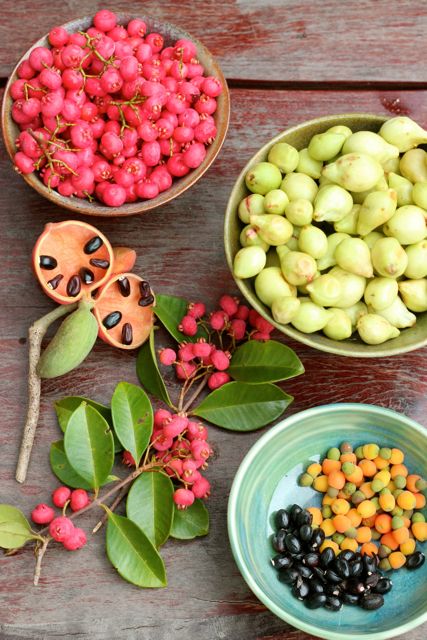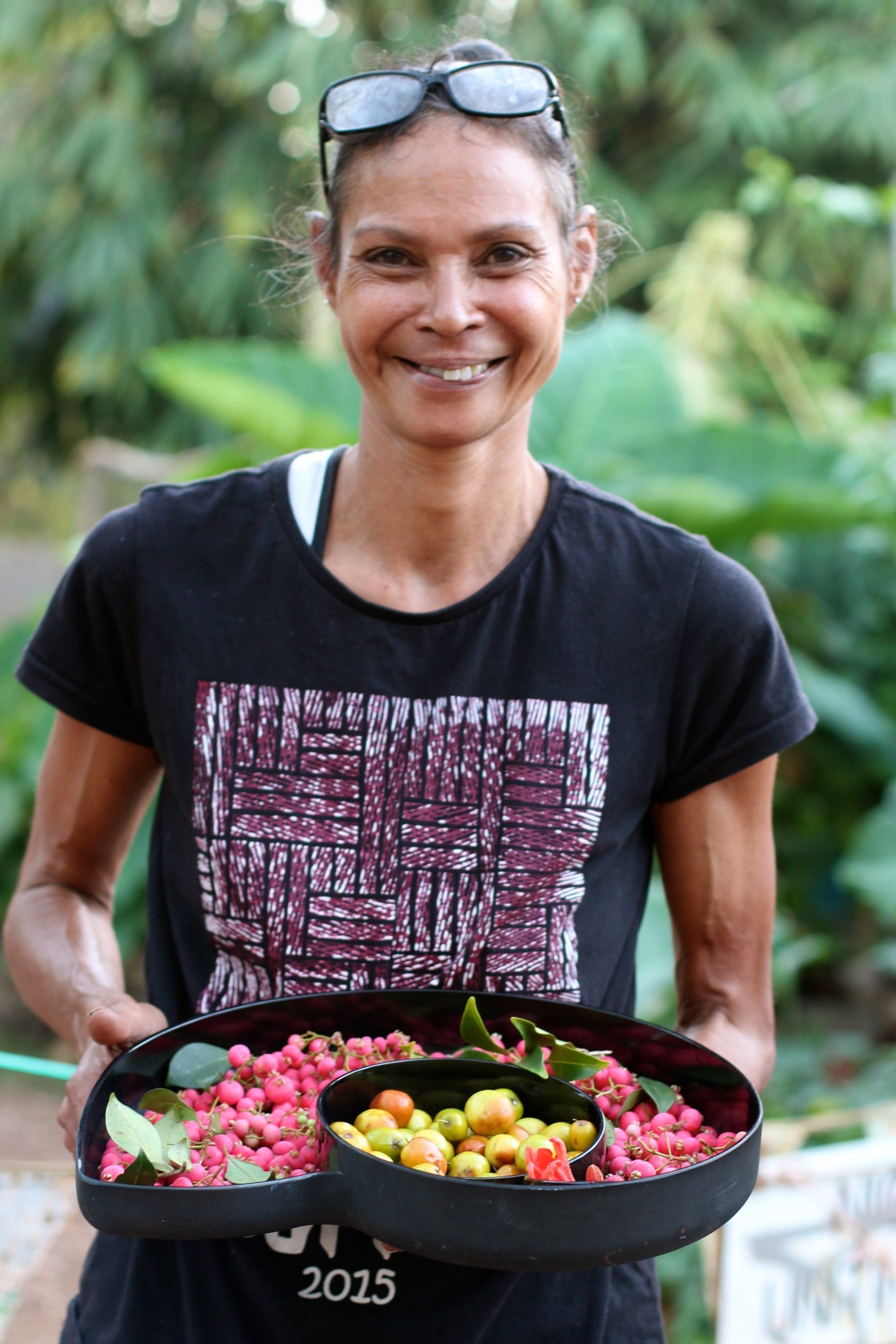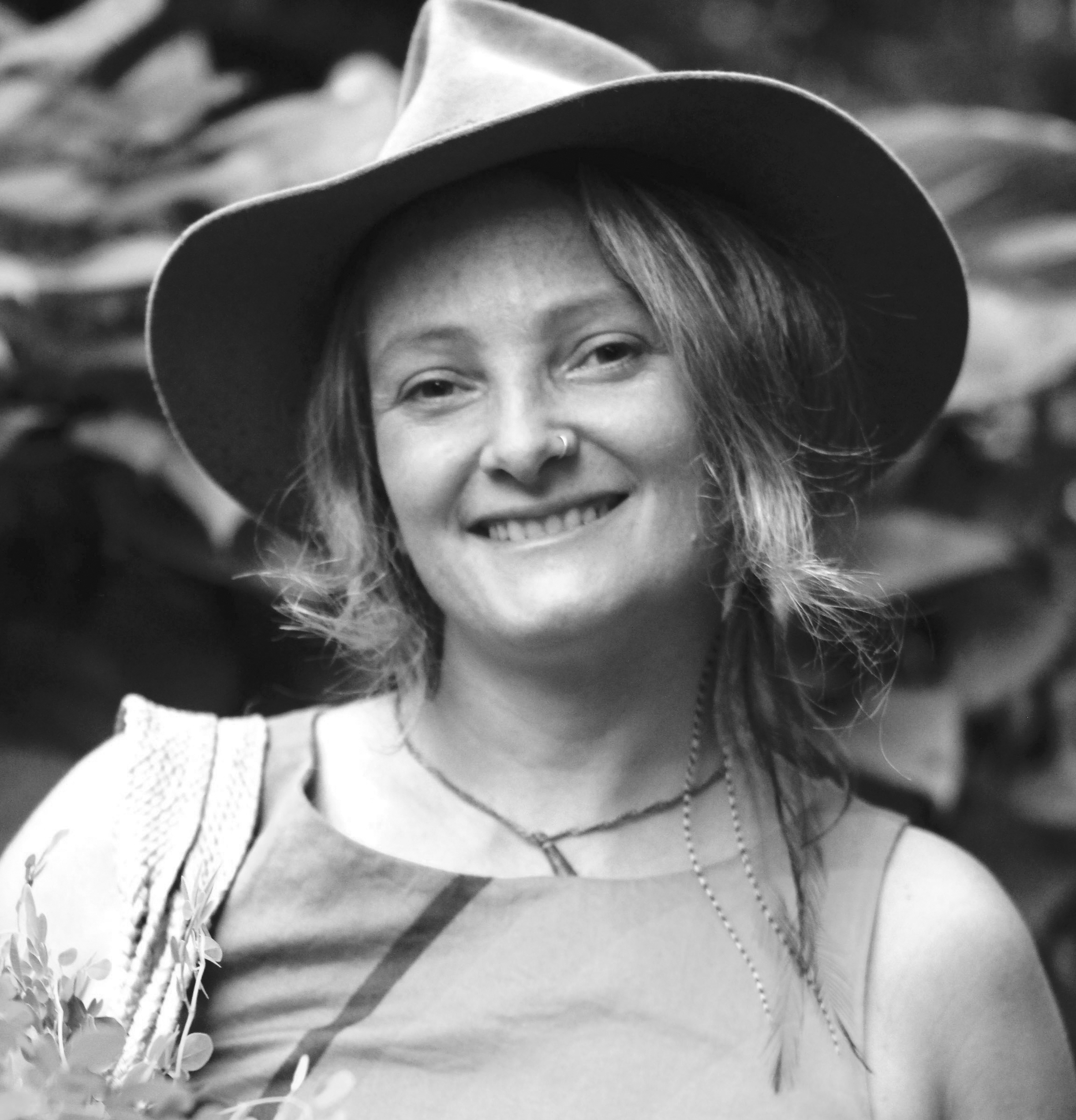Community Cook - May
Connecting people, plants and place.
By Emma Lupin
Although edible sea creatures and fish are probably more widely known, the colourful treasures of edible native fruits and hidden roots are scattered throughout our native Top End landscapes.
Kakadu plums (Terminalia ferdinandiana) are ripe and falling and are from a very common native tree found in in our savanna woodlands.
 Incredibly high in vitamin C, they can also be grown as a feature tree. Once deseeded, the fruit can be added to smoothies, cakes or other treats – and of course just eaten on their own, sour and delicious.
Incredibly high in vitamin C, they can also be grown as a feature tree. Once deseeded, the fruit can be added to smoothies, cakes or other treats – and of course just eaten on their own, sour and delicious.
They are among a huge array of wonderful edible natives that are easily found or grown throughout the year, including many lilly pillies (Syzygiums), native figs and green plums (Buchanania obovata).
Recognising our native plants goes hand in hand with acknowledging the traditional owners, and in the Darwin area that's the Larrakia people.
Leslie Gordon is a Larrakia lady, and we have connected over the years through food gardens and community events.
 Growing up in Darwin, she often spent her childhood holidays collecting bush tucker and hunting and learning from her sisters.
Growing up in Darwin, she often spent her childhood holidays collecting bush tucker and hunting and learning from her sisters.
She has a deep connection to this land and shares some of her childhood memories and connections by sharing local shellfish and fruits along with stories with the Darwin community.
One food she loves to cook is long bums (with the wonderful scientific name Telescopium telescopium), collected from the mangroves, cooked on the coals of a fire and cracked open to eat. They are an amazing green colour with a slippery and salty texture.
Kakadu plum smoothie shots
400ml coconut milk or coconut and almond milk
100g grated palm sugar or 100ml local honey
I cup fresh or frozen Kakadu plums – stones and skin removed *
1 tsp tangy vitamin C powder (if using frozen fruit)
1 tsp local lime juice or tamarind pulp (to taste)
5-6 small ice cubes
Pop ingredients in a blender and mix until smooth. You can serve this straight away, chill or even freeze.
The Kakadu plum is exceptionally high in Vitamin C, so only a shot glass or small cup is needed. Banana can also be added.
* You must get the land-holder's permission to collect any native fruit on a property that isn't yours.
 Emma Lupin is a tropical plant specialist and local food enthusiast with a passion for sustainable living and community connection. She is an environmental educator and artist and encourages connection to the beautiful natural world, particularly our tropical home.
Emma Lupin is a tropical plant specialist and local food enthusiast with a passion for sustainable living and community connection. She is an environmental educator and artist and encourages connection to the beautiful natural world, particularly our tropical home.
FOLLOW tasteofthetopend.com | @tasteofthetopend
